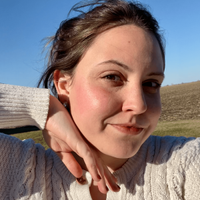The Best Foundations for Rosacea-Prone Skin To Cover and Calm Redness
Hypoallergenic, fragrance-free, and non-comedogenic formulas, ahead.
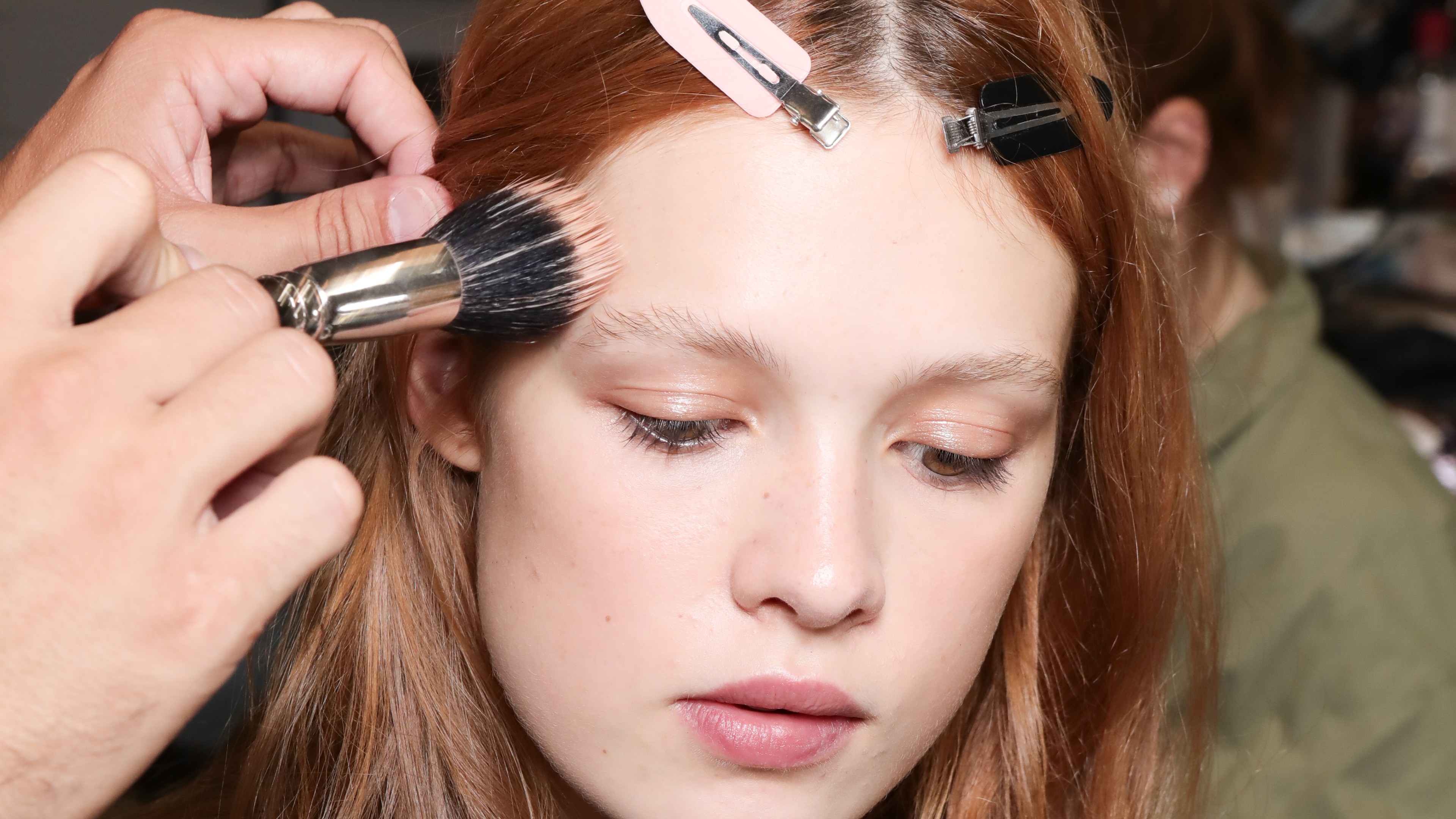
I experienced my very first rosacea flare about five years ago. It was super fun—acne-like bumps in all their red and angry glory made their home on my cheeks and chin. Since then, I've learned how to manage with skincare and makeup. I use the best skincare products for rosacea, incorporate cryotherapy whenever humanly possible, and use the best foundations for rosacea-prone skin to both cover and calm redness.
Finding rosacea-safe products has definitely been a journey. Makeup and skincare normally don't come with "good for rosacea" labels, so finding a routine that works for my redness-prone skin has required a great deal of trial, error, and expert consultations.
My biggest takeaway: "Certain ingredients that are commonly found in cosmetic products such as fragrance, alcohol, and other harsh chemicals can irritate sensitive skin and trigger a rosacea flare," explains Dr. Connie Yang, a dermatologist at PFRANKMD by Dr. Paul Jarrod Frank. “This includes fragrances, alcohol (found in toners and astringents), physical exfoliants or scrubs, and ingredients such as parabens, sulfates, and phthalates.”
Calming ingredients (centella asiatica and aloe vera are my BFFs) and high-pigment coverage with a lightweight finish tend to be my safe space. If you're experiencing the same struggle with redness, keep scrolling for my editor-approved best foundations for rosacea—from tinted, light-coverage serums to medium-coverage options.
The Best Foundations for Rosacea
- Best Foundation for Rosacea Overall: Chantecaille Future Skin Oil Free Foundation
- Best Light Coverage Foundation for Rosacea: Charlotte Tilbury Unreal Skin Sheer Glow Tint Hydrating Foundation Stick
- Best Medium Coverage Foundation for Rosacea: Chanel Sublimage L'Essence D'Tient
- Best Full Coverage Foundation for Rosacea: Patrick Ta Major Skin Hydra-Luxe Luminous Skin Perfecting Foundation
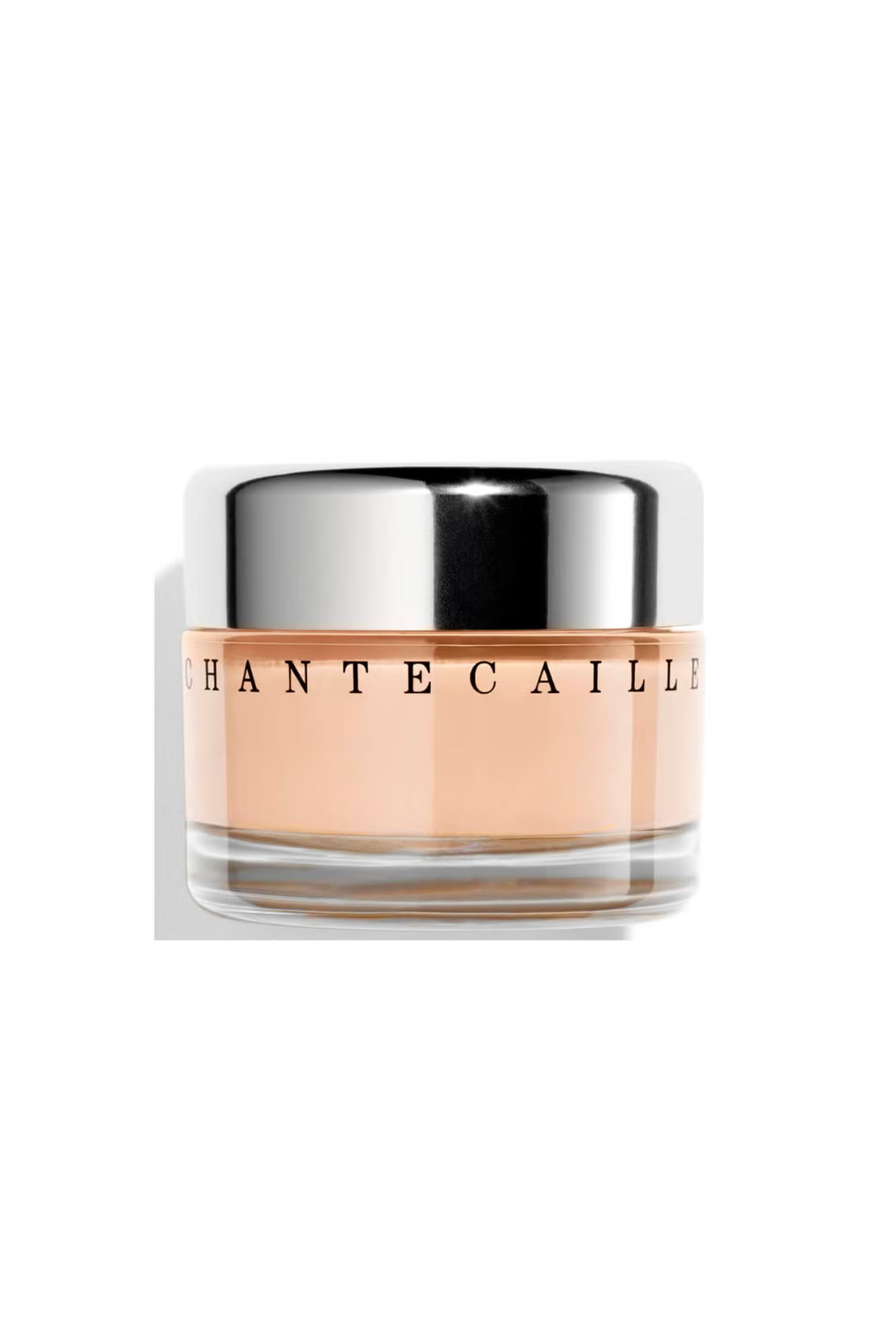
It might be on pricey side but Chantecaille's Future Skin Oil Free Foundation (it's made with 60 percent water) is perfect for my rosacea-prone skin. It allows my skin to breathe while still evening out my overall tone. The best part? It's dermatologist-approved. "I love that this is a gel, so it feels ultra lightweight on your skin and that you can build up on the coverage as desired. I particularly like this for rosacea-prone skin because it is rich in skin-soothing botanical extracts such as chamomile and aloe," says board-certified dermatologist Margarita Lolis, M.D.
Coverage: Medium
What We Love: Hydrating; Allergy-tested; Dermatologist-approved; Lightweight; Oil-free
What We Don't: Expensive; Darker shade selection is lacking
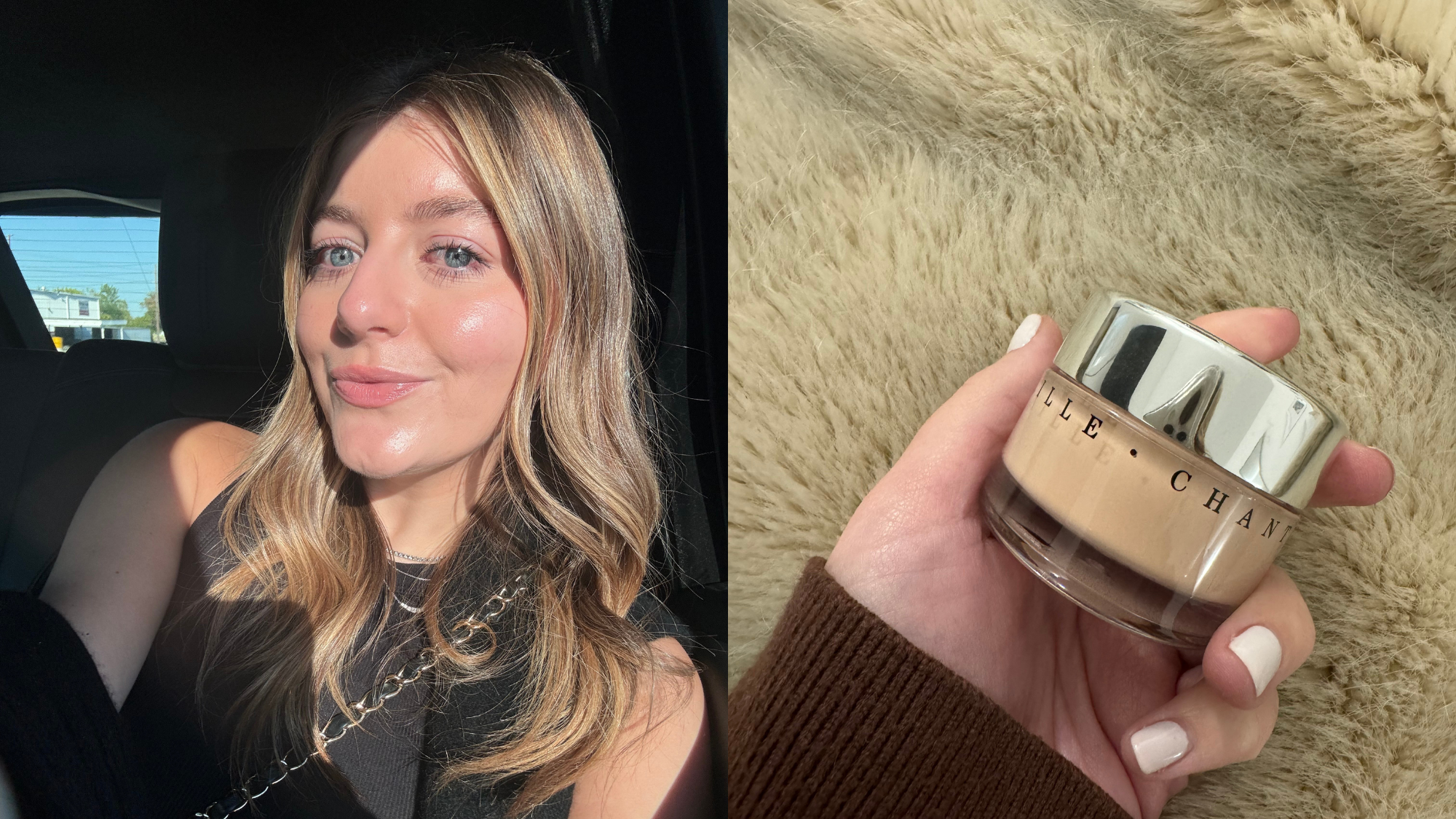
Samantha Holender wears Chantecaille Future Skin Oil Free Foundation.
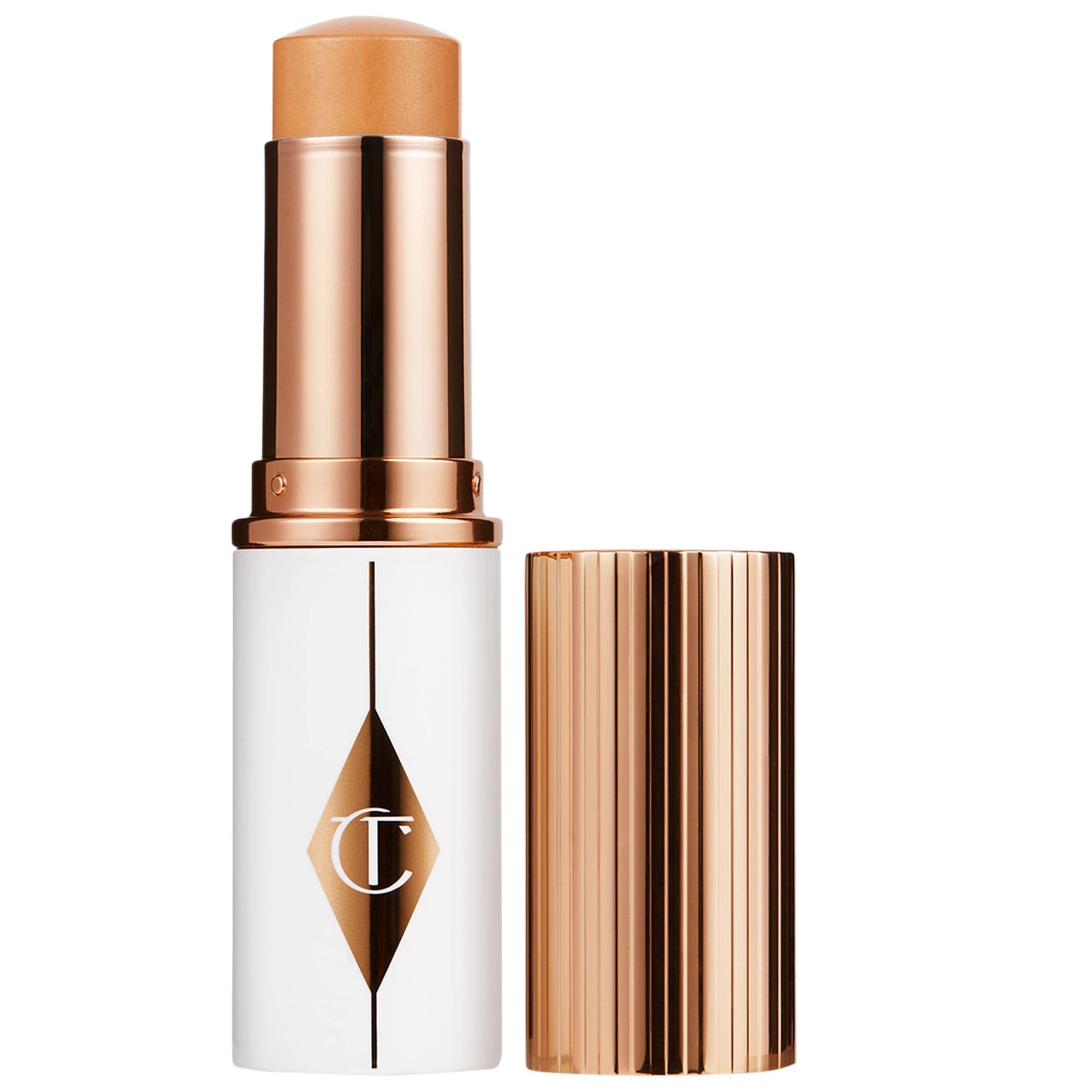
While my cheeks are red and flushed 90 percent of the time, I live for the days when my skin is even. On those days, this light coverage foundation stick is the only product I reach for to even out the rest of my skin tone. It doesn't irritate, aggravate, or illicit a flare, but it does manage to help my skin look like I'm standing in front of a ring light 24/7.
Coverage: Light
What We Love: Contains moisturizing vitamin E; hydrating formula; great for travel; shades have complex undertone so you can find your perfect match
What We Don't: While I personally love the finish, it is very dewy and glowy, which might be too intense for some
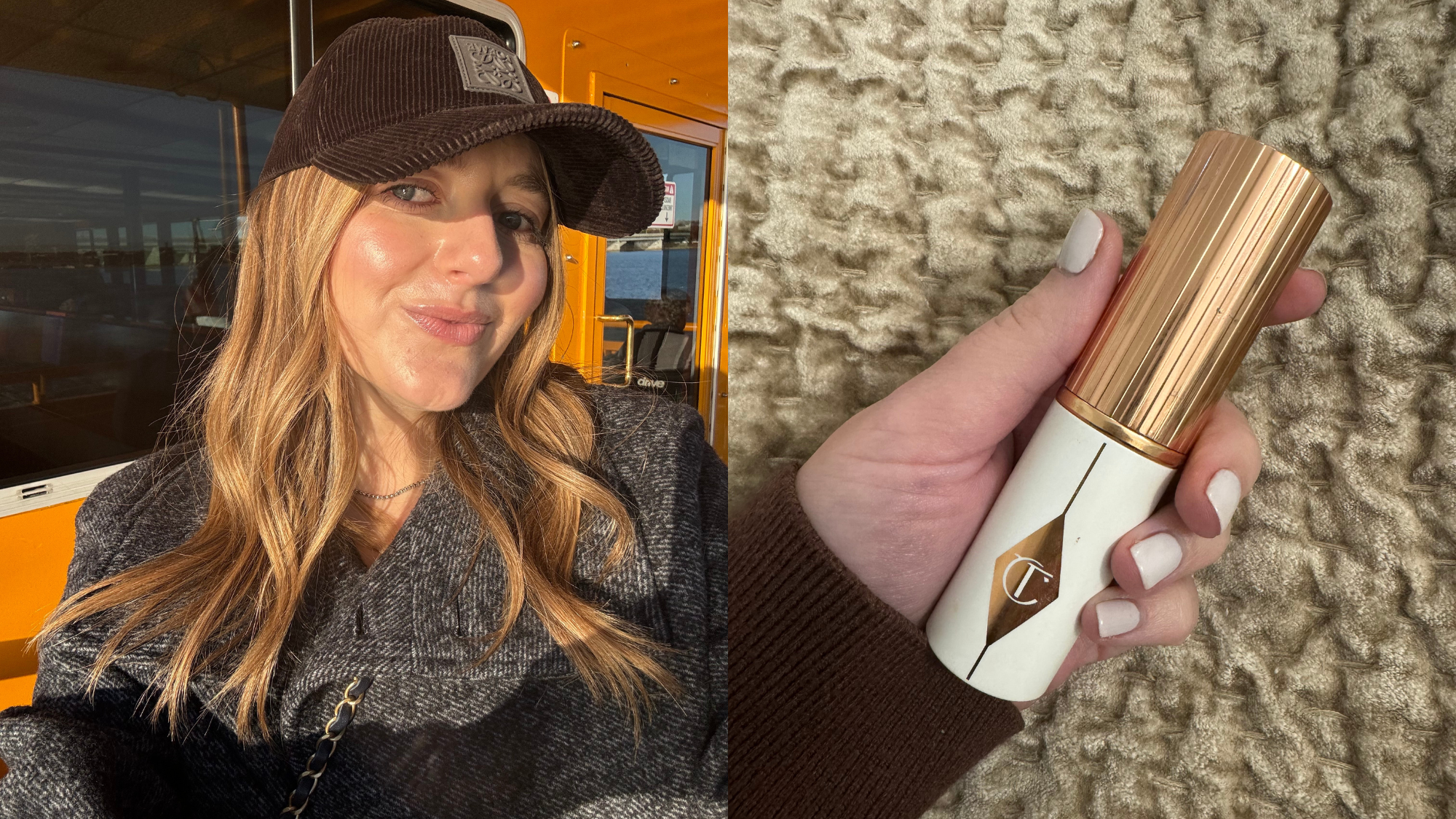
Samantha Holender wears Charlotte Tilbury Unreal Skin Sheer Glow Tint Hydrating Foundation Stick.
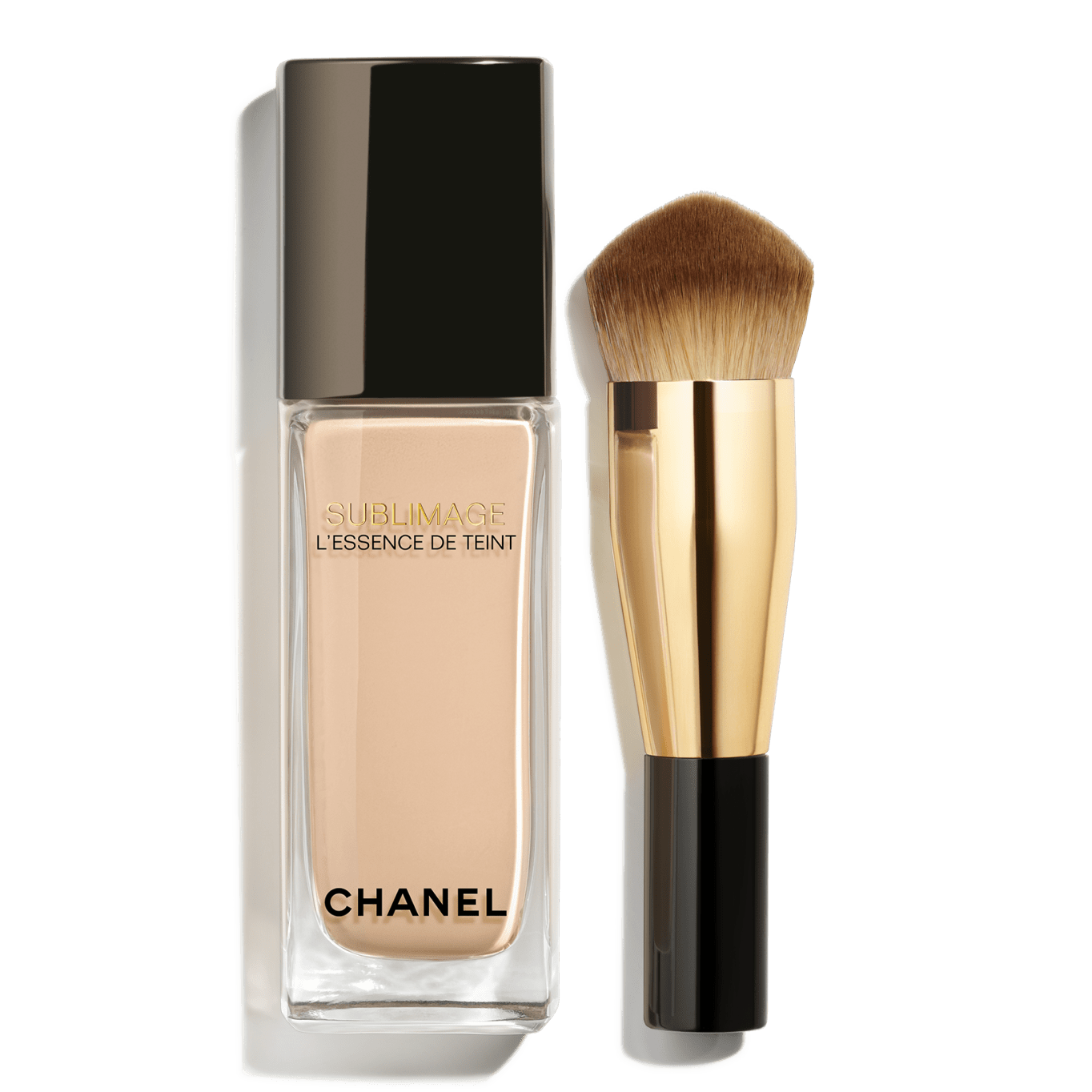
Sometimes my rosacea presents with just a red flush on my cheeks, but other times it's accompanied by a bumpy texture. When dealing with the latter, this luxury foundation truly saves the day. The medium coverage and stunning finish are worth calling out, but it's the magical ability to smooth over texture that makes the product a staple in my makeup routine. The formula contains vanilla planifolia along with soothing vanilla enfleurage, both of which calm down my rosacea within a day.
Coverage: Buildable, light to medium
What We Love: The brush that accompanies the foundation ensures flawless application
What We Don't: This foundation does contain fragrance. I personally don't find it irritating, but it will be a case by case basis
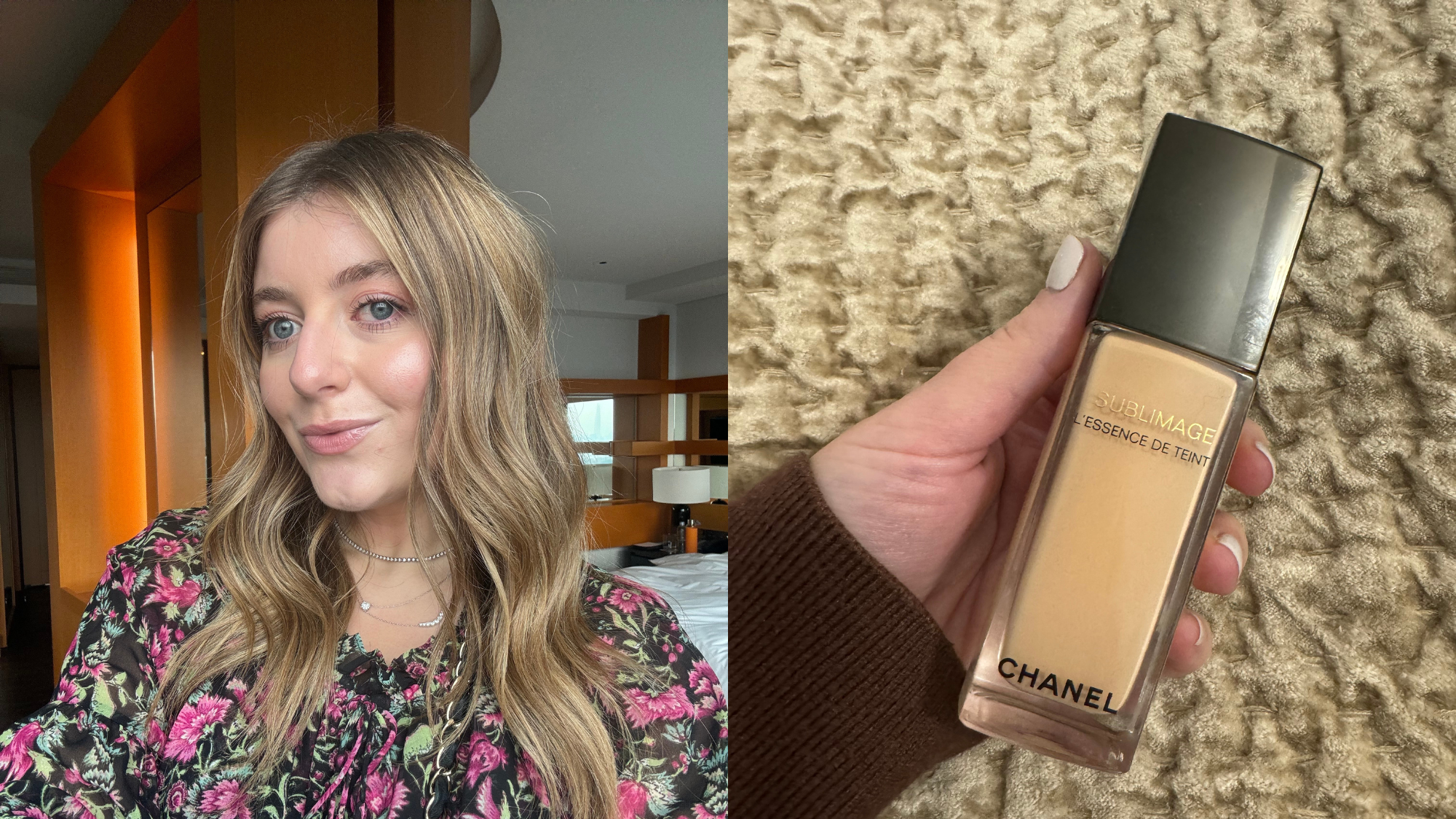
Samantha Holender wears Chanel Sublimage L’essence De Teint.
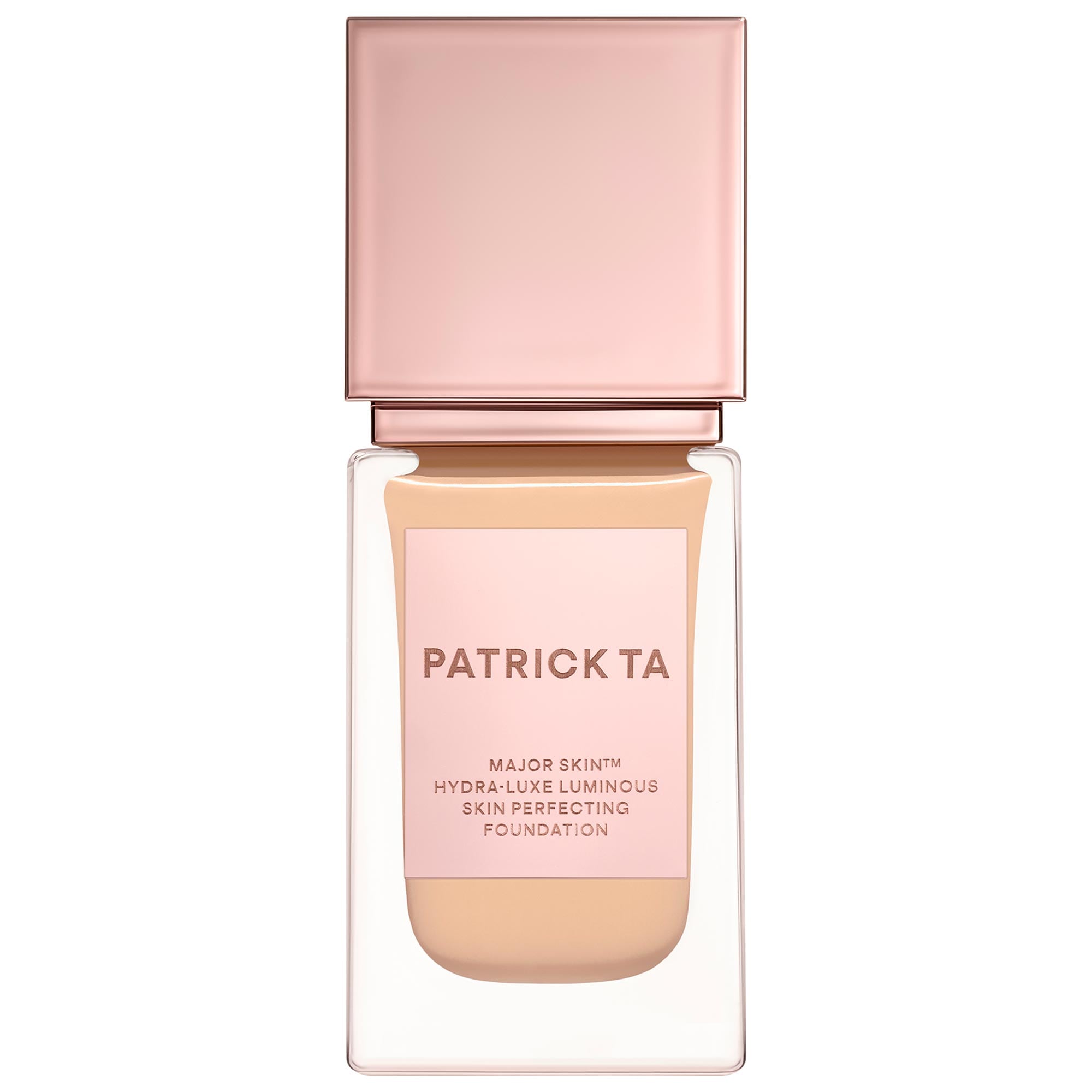
When I first saw Patrick Ta apply this foundation to a model during a launch event, I almost didn't believe my eyes. The luminosity is unmatched. Since I took this new(ish) launch home, it's been in my weekly rotation and I couldn't be more pleased. The formula is incredibly buildable—I'll get medium coverage with a Beauty Blender and fuller coverage with a brush—but even with just a pea-size amount of the formula, I can camouflage redness. Thanks to the inclusion of kombucha, it can also help smooth out skin texture.
Coverage: Medium to full
What We Love: Wide-spanning color range; glowy finish that can be built up without getting cakey
What We Don't: Can get oily as the day goes on
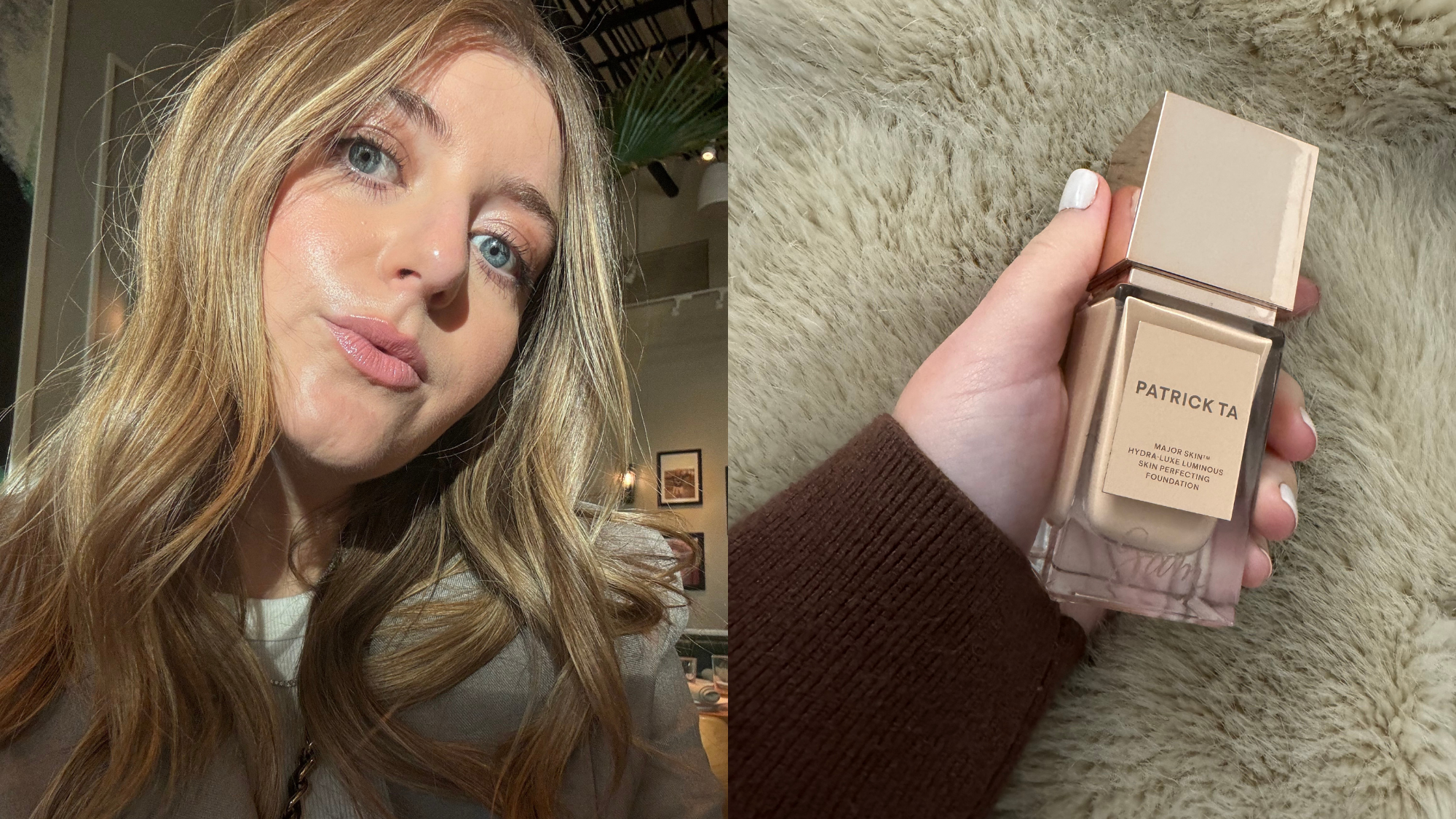
Samantha Holender wears Patrick Ta Major Skin Hydra-Luxe Luminous Skin Perfecting Foundation for Natural Glow.
Other Foundations for Rosacea We Love
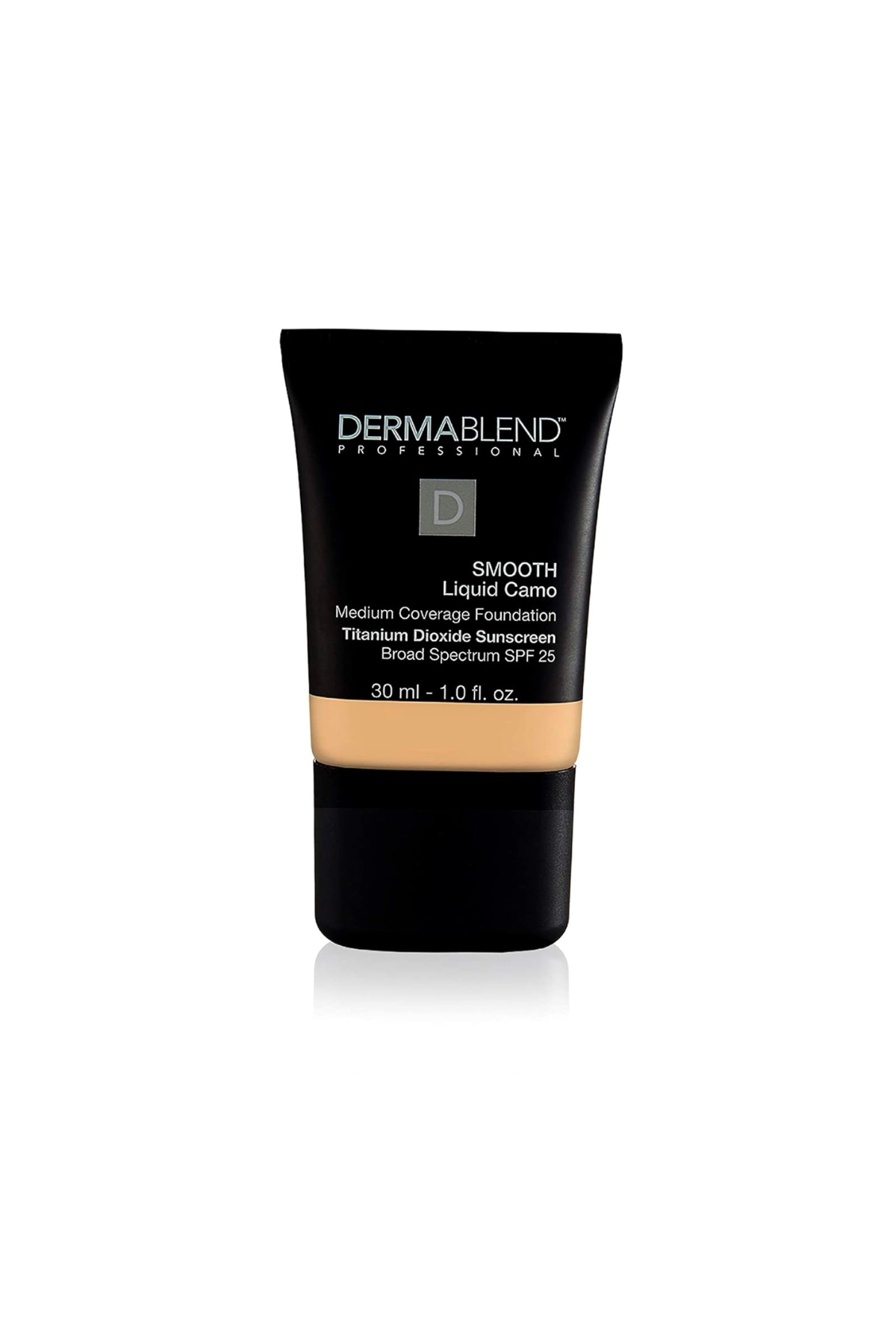
Dermablend excels at combining a full coverage finish with a safe-for-senstive-skin formula, which makes the brand a dermatologist favorite. "Their products are allergy-tested and fragrance-free," notes Dr. Yang. This smooth liquid foundation will entirely conceal redness (it even covers tattoos) and holds up impressively well in major heat.
Coverage: Full
What We Love: Impressive coverage; Fragrance-free; Dermatologist-approved
What We Don't: Some reviewers aren't impressed by the size
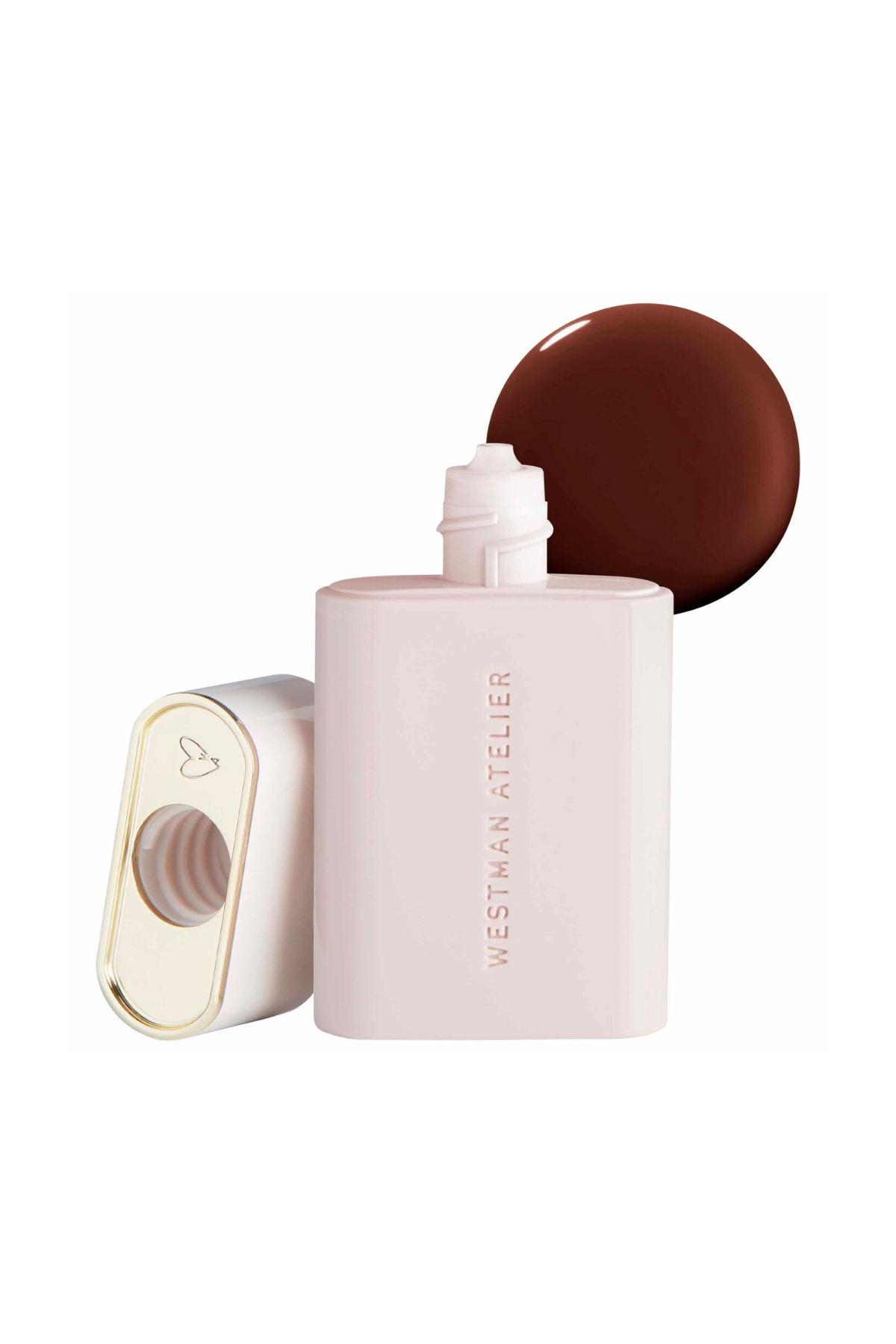
Makeup mastermind Gucci Westman has struggled with chronic rosacea throughout her life, which means she understands the assignment for creating the perfect foundation (while also helping your skin glow like a light bulb). The Vital Skin Complexion Drops are great for light coverage, can actually soothe the skin, and help to neutralize redness thanks to calming actives like ginseng extract.
Coverage: Light
What We Love: Weightless; Editor-approved; Skin-loving ingredients
What We Don't: More expensive than other options
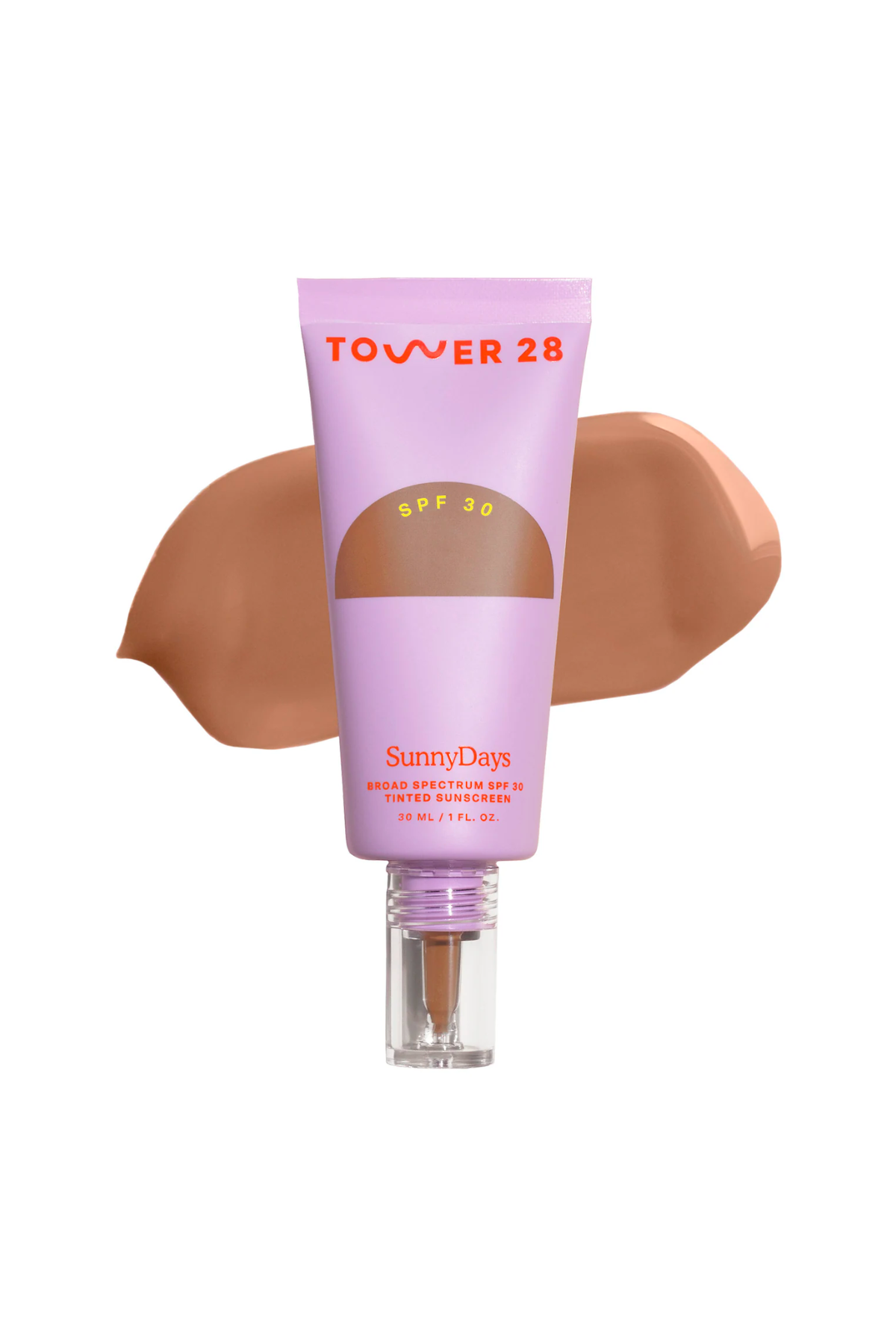
Designed for sensitive skin, SunnyDays SPF 30 Tinted Sunscreen Foundation contains a combination of mineral sunscreen (which is gentler on reactive skin) and foundation. It even received the National Eczema Association’s Seal of Acceptance. With light-to-medium coverage, the formula contains protective, soothing ingredients like prickly pear extract, aloe vera, and white sage.
Coverage: Light to medium
What We Love Wide color range; Buildable; Contains SPF
What We Don't: Can feel a little wet on the skin
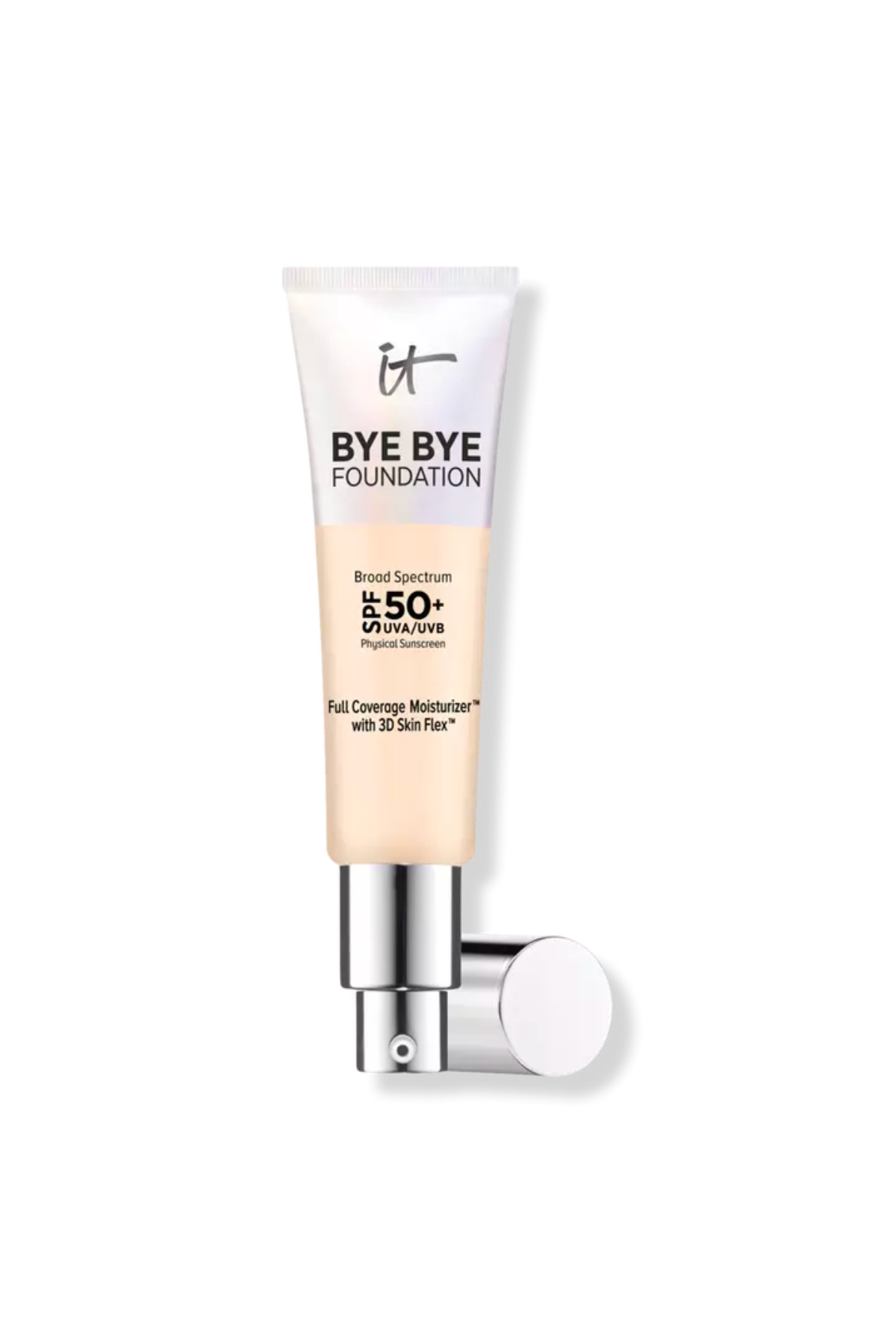
Dr. Kseniya Kobets, Director of Cosmetic Dermatology at Montefiore, loves this full-coverage formula for its multi-purpose design. Not only is it a moisturizer with seven fermented ingredients that boost absorption and efficacy, but it also features SPF 50+ broad-spectrum physical sunscreen to protect your skin damaging UVA/UVB rays. You're covering all of your bases here.
Coverage: Full
What We Love: Moisturizing; Good coverage
What We Don't Some reviewers report creasing
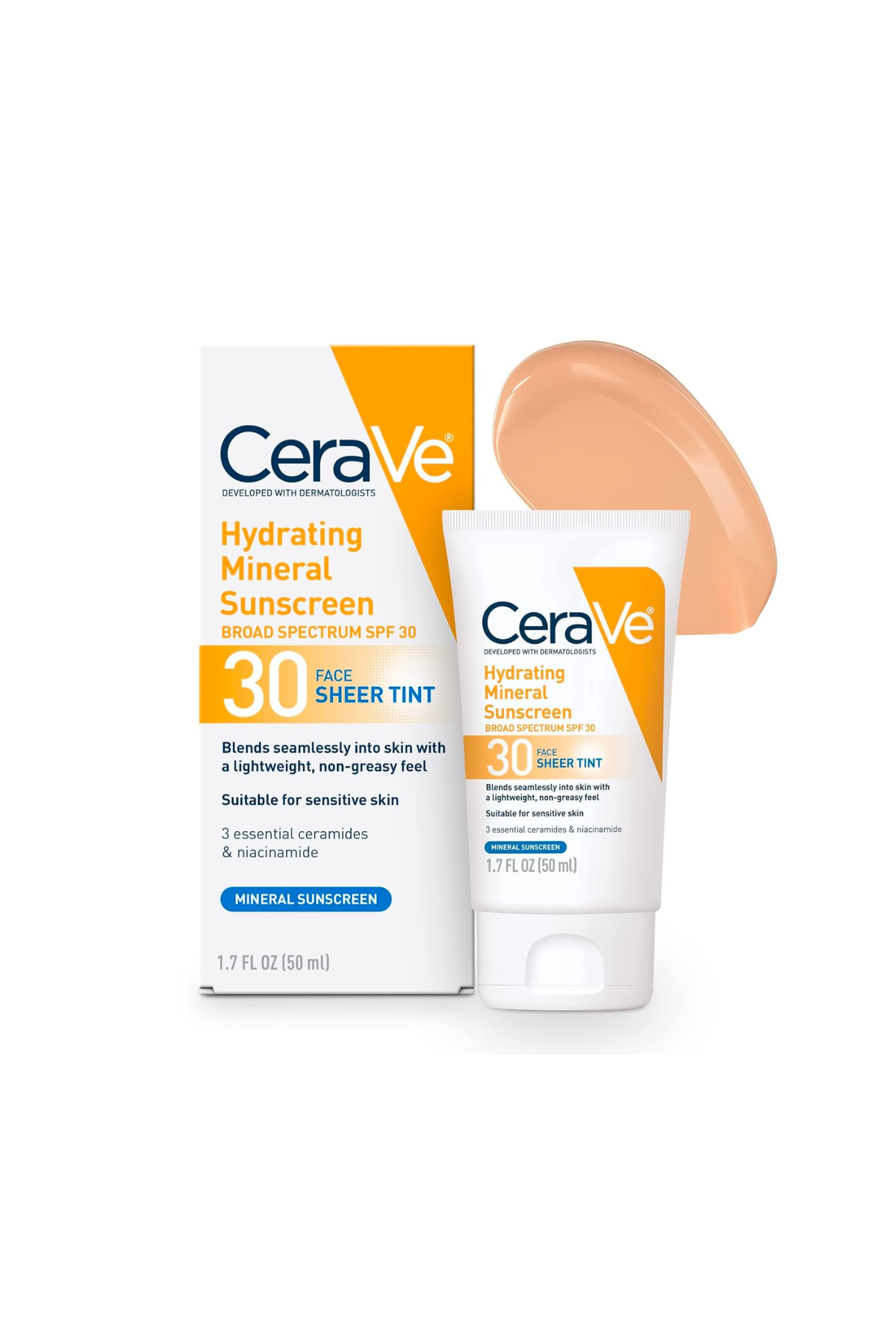
Dr. Kobets suggests reaching for this CeraVe option if you're looking for lighter coverage with plenty of sun protection. A mineral sunscreen first and foremost, this fragrance-free, non-comedogenic, sheer formula features ceramides and hyaluronic acid to protect the skin barrier and help you retain moisture. It's a great budget option for the warmer months, too. Just remember—sunscreen is necessary year-round!
Coverage: Light
What We Love: Dermatologist-recommended; A little goes a long way
What We Don't: Some reviewers report a white cast
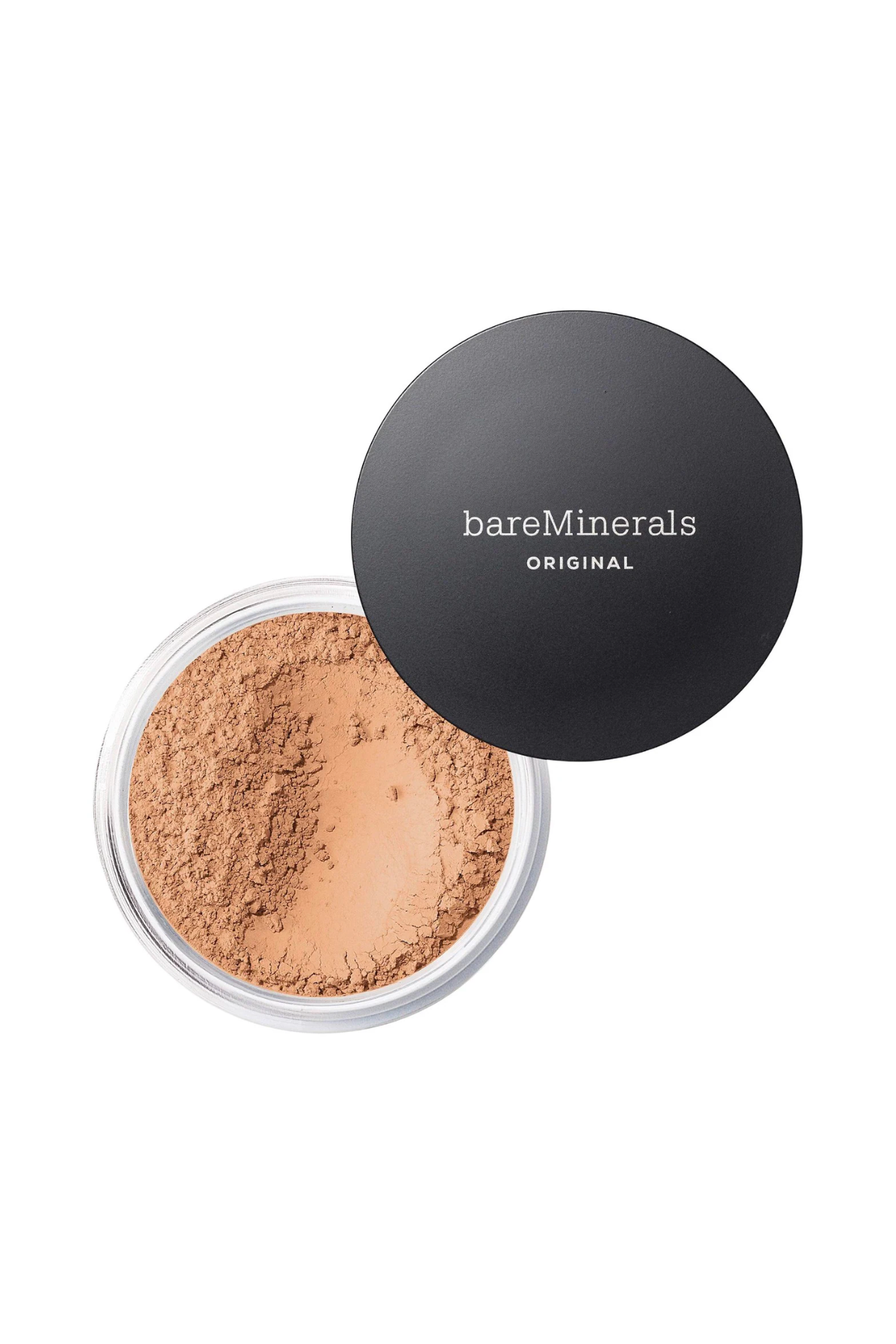
This is a classic powder (it's been around for nearly two decades) that's free of parabens, fillers, and binders. "It’s a pretty pure product, so there is less irritation potential and it is oil-free, so it does not clog pores," Dr. Lolis shares. "It provides good lasting coverage and has built-in sun protection from the titanium and zinc oxide minerals."
Coverage: Medium
What We Love: Lightweight; Oil-free; Built-in sun protection; Wide shade range
What We Don't: Can be messy to apply; Some reviewers find the product cakey
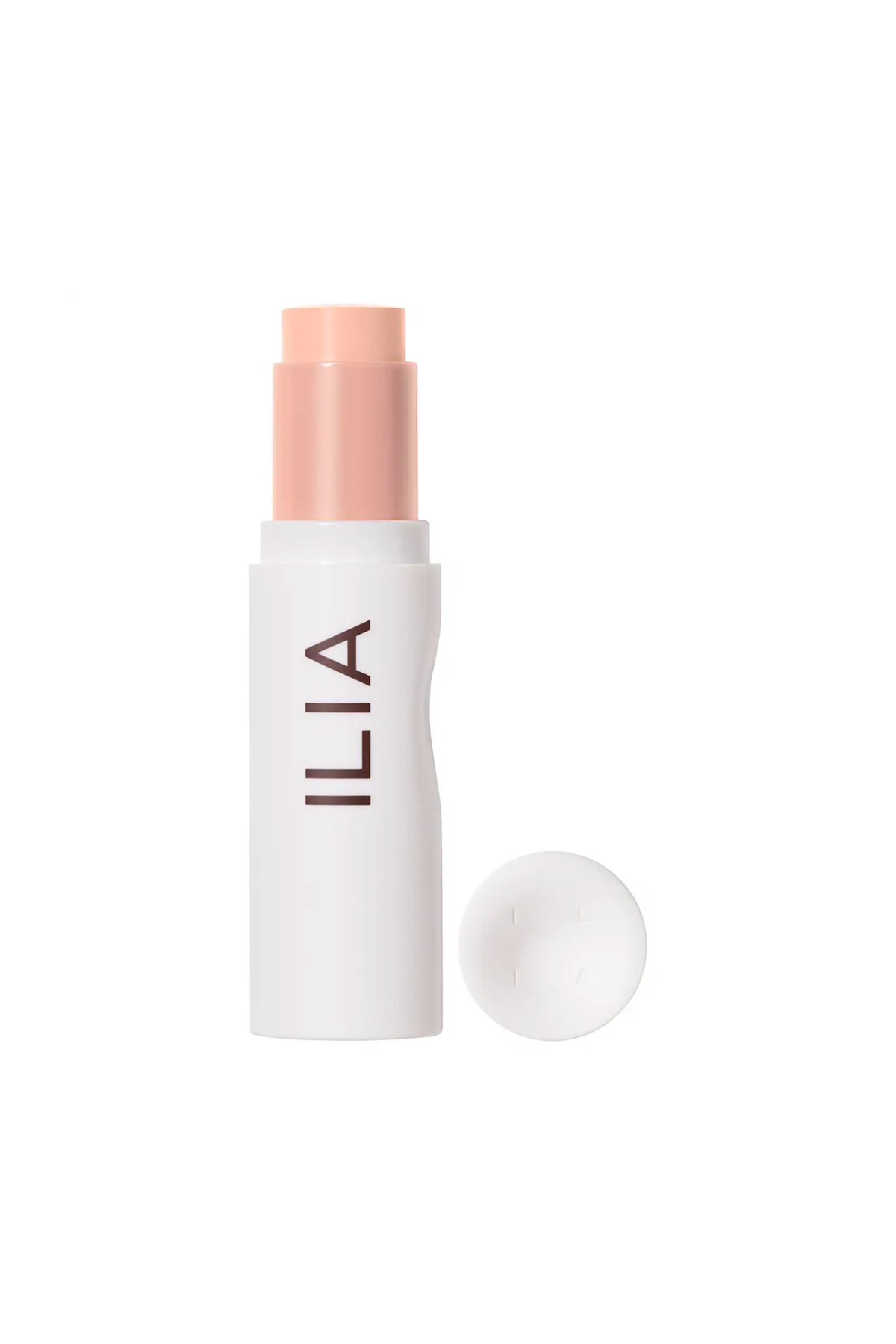
Since launching in early 2024, ILIA's Skin Rewind has already become a holy grail beauty item. Available in 42 shades, this fragrance-free, medium-coverage foundation stick boasts a ceramide-peptide complex to visibly firm and strengthen your skin barrier and butterfly lavender extract to smooth the appearance of fine lines and wrinkles.
Coverage: Light to medium
What We Love: Impressive shade range; Easy to apply; Moisturizing
What We Don't: Can be a little drying
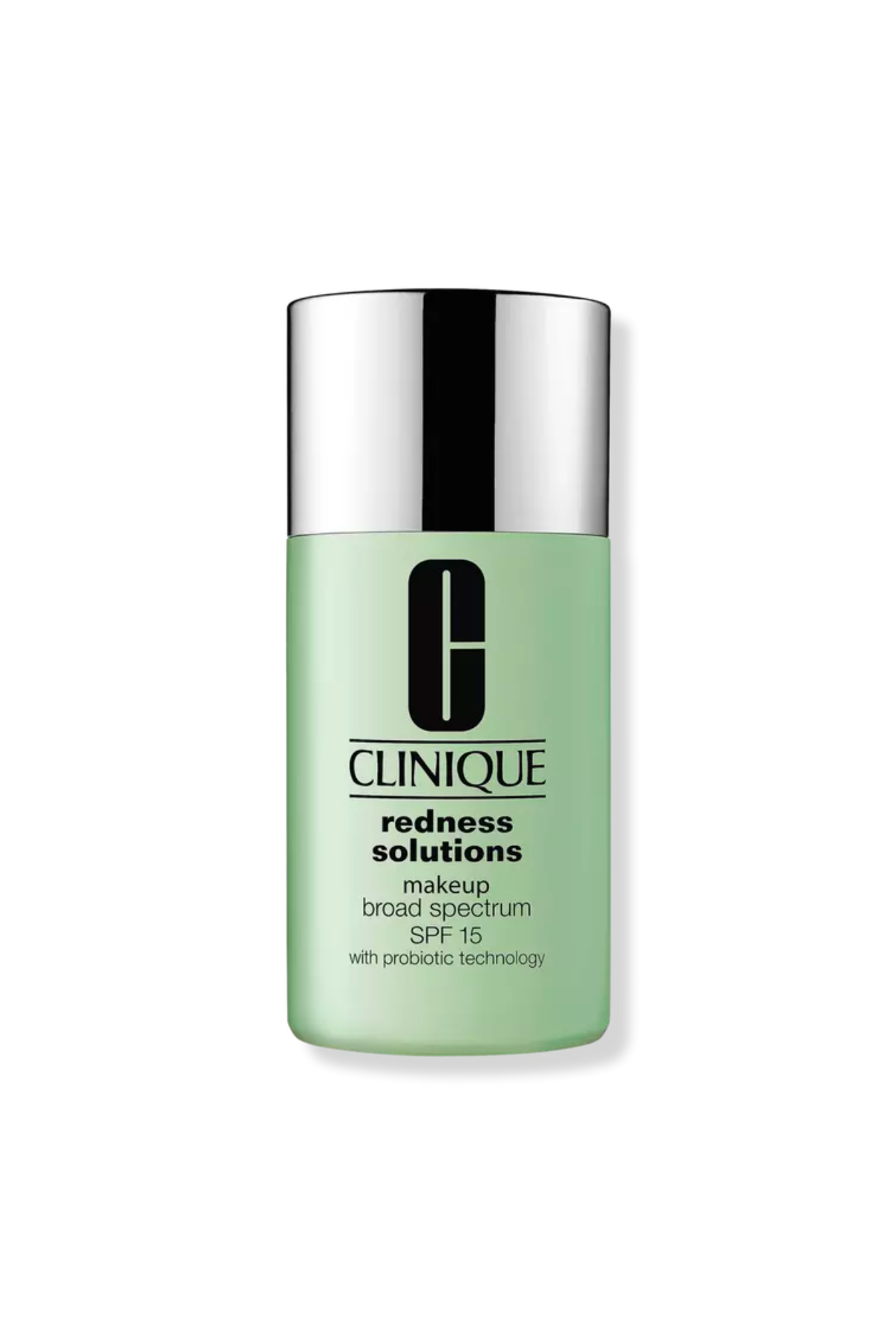
Dr. Yang is a big fan of Clinique, a brand that is developed by dermatologists and suitable for sensitive skin. While every single foundation in the range is a safe bet, this one was specially formulated to cover redness. The biggest downside? It only comes in six shades, all of which are quite light.
Coverage: Medium
Pros: Calming ingredients; Oil-free; Color-correcting; Lightweight
Cons: No shades for darker skin tones
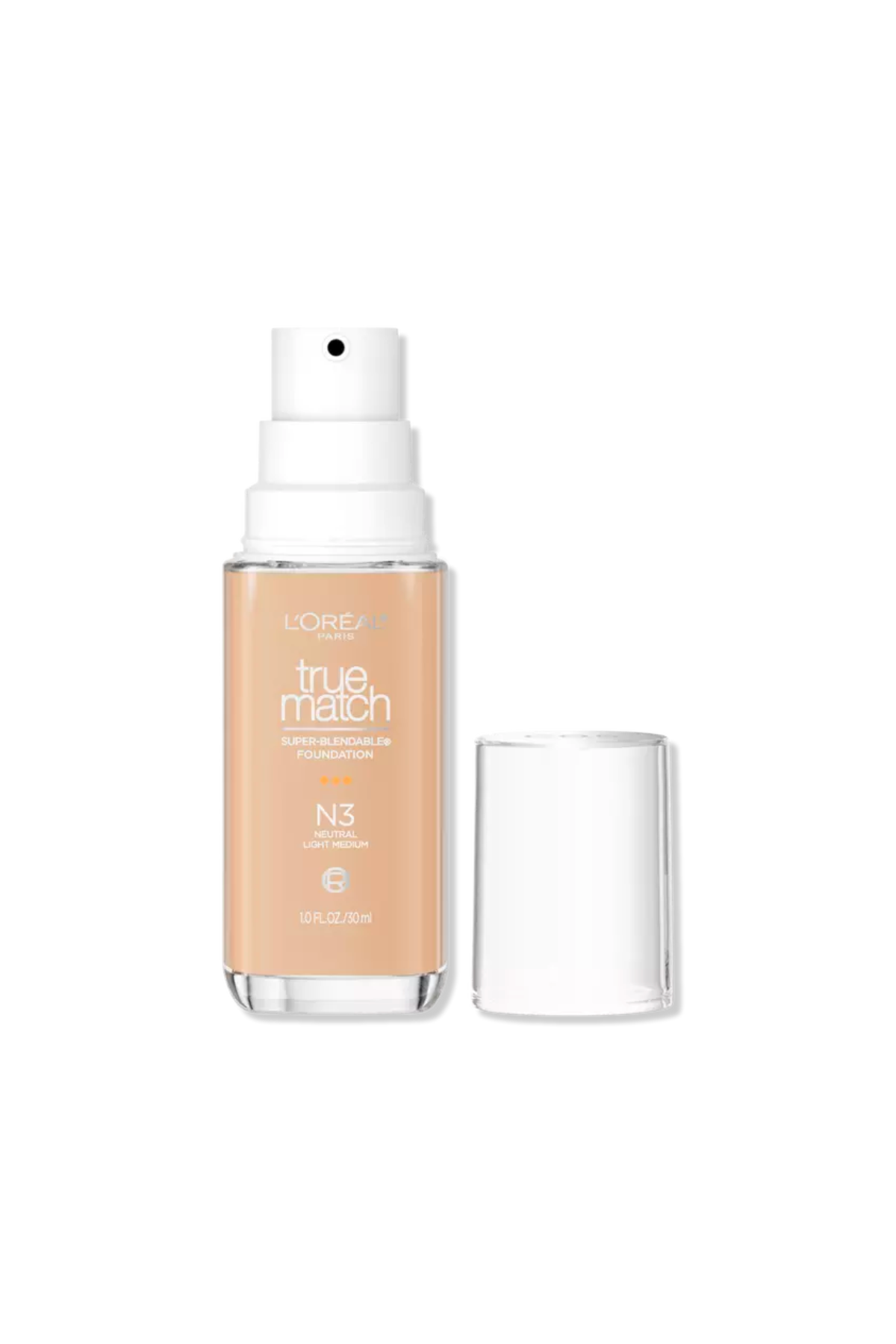
L'Oréal True Match was my first foundation, and it still holds up. But now it's even better because the packaging has been updated to have a pump for mess-free application. Super blendable with medium coverage, this alcohol-free, oil-free, fragrance-free, and non-comedogenic selection is available in a whopping 47 shades, so you can find exactly what suits your complexion.
Coverage: Medium
What We Love: Affordable; Impressive shade selection
What We Don't: No longer contains SPF

It's not technically a foundation, but Dr. Jart+'s Cicapair Tiger Grass Color Correcting treatment is a rosacea-prone skin must-have, according to Erica Marie Gatt, an aesthetician and founder of EM Skin. Because green and red are opposites on the color wheel, the mint-colored cream helps to neutralize a rosy complexion. It's my personal go-to on days when I don’t want to wear full-fledged foundation but still want to tone down redness. A bonus? It includes SPF 30.
Coverage: Light
What We Love: Aesthetician-approved; Neutralizes redness; Contains SPF
What We Don't: Some reviewers find it greasy
What Is Rosacea?
While doctors don't know exactly what causes rosacea, they do know that it's an inflammatory condition and that presents in different ways for different people. Erythematotelangiectatic rosacea is accompanied by redness, flushing, and dilated blood vessels, whereas papulopustular rosacea has acne-like features, shares Dr. Kobets. There's also the phymatous type, where bumpy textures accompany extra-dilated pores and thickened skin.
What to Look For in a Foundation for Rosacea
- Labels
When searching for a foundation for rosacea, look for labels like hypoallergenic, fragrance-free, non-comedogenic (that means it's been formulated not to cause blocked pores!), and fragrance-free.
- Hydration
Dr. Lolis says a hydrating foundation is best because it can "help calm the skin and make the foundation feel more comfortable." Look for moisture-loving ingredients like hyaluronic acid, centella asiatica, niacinamide, or ceramides.
- Weight
Foundations can clog pores depending on their consistency and formulation. Dr. Lolis recommends lightweight, water-based formulations to prevent occlusion and breakouts.
Ingredients to Avoid in a Foundation for Rosacea
"Steer clear of fragrances, plus chemical SPF ingredients like avobenzone and oxybenzone in such foundations, which can not only cause allergic or irritant contact dermatitis but also exacerbate the [acne form of rosacea]," says Dr. Kobets. She also recommends that those with acne-type rosacea avoid foundations with dimethicone as the first ingredient.
Dr. Lolis adds lanolin, almond oil, coconut oil, and mineral oil to the list, as they can "sit and emulsify in your sebaceous glands and increase the oiliness of your skin." That means oil-based foundations are generally a no-go.
How to Test Foundations for Rosacea
Gatt recommends you patch-test new products before using them on your whole face. Apply a small drop to your neck or a small portion of your face to see how it will react with your skin and reduce your risk of irritation.
How to Remove Foundations for Rosacea-Prone Skin
"Just like any cream, lotion, or product applied on the face, foundations are composed of chemicals that can also potentially irritate the skin," adds Dr. Lolis. "To minimize any negative effects of foundation, it's important to double cleanse to fully remove all the potential irritants as well as the oil, trapped dirt, and grease from the foundation."
Meet the Experts
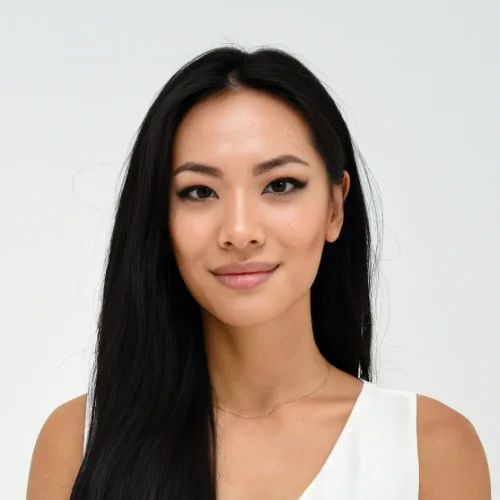
Dr. Yang is a board-certified dermatologist based in New York City, known for her dedication to helping patients achieve and maintain healthy, beautiful skin.
She attended Northwestern University for her undergraduate studies, building a strong foundation in the sciences. She pursued her medical degree at Boston University School of Medicine and spent a dedicated research year at Massachusetts General Hospital, Department of Dermatology where she worked in the clinic for pigmentary disorders and served as the administrative director for Project Phoenix, MGH’s pro-bono tattoo removal clinic. She completed her dermatology residency at Mount Sinai Hospital, where she served as Chief Resident of Cosmetics in her final year of residency.
Dr. Yang is certified by the American Board of Dermatology and is a Fellow of the American Academy of Dermatology.
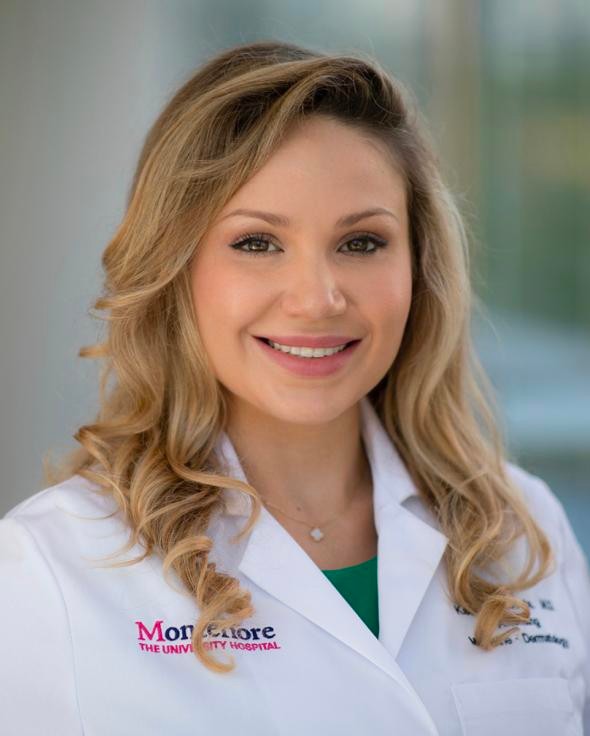
Dr. Kseniya Kobets’ clinical focus is on the cosmetic treatment of patients using cutting-edge modalities for rejuvenation, acne, rosacea, acne scarring and hair restoration. After earning her Bachelor of Arts from City University of New York in 2005, Dr. Kobets attended Yale University School of Medicine. There, she pursued a dual degree program, earning her Doctor of Medicine and Master of Health Science in 2011. Her postdoctoral training began with a yearlong internship at Yale New Haven Hospital. She then went to University of Pittsburgh Medical Center, completing a three-year dermatology residency in 2015, followed by a cosmetic dermatologic surgery fellowship at the institution’s Cosmetic Surgery and Skin Health Center in 2016. Dr. Kobets’ research focus is on the development of an institutional review board for evaluating hair restoration with non-ablative laser and topical growth factors. She has shared her research through peer-reviewed publications and book chapters, as well as oral presentations. A leading board-certified dermatologist, Dr. Kobets is a member of the American Academy of Dermatology, the American Society for Dermatologic Surgery and the American Society for Laser, Medicine, and Surgery. Dr. Kobets practices at The Cosmetic Dermatology Center at Montefiore Einstein Advanced Care Westchester, a cosmetic dermatology center setting a new standard for state-of-art skin care services. Here, she uses the latest tools and techniques, supported by advanced technologies and clinical research for personalized treatment plans for all patients with the goal of achieving a naturally beautiful appearance. Services range from acne scar treatment, injectables, chemical peels, hair restoration, laser treatments, microneedling, Photodynamic treatment, Platelet-rich plasma, thread lifts and other pro-aging and healthy skin therapies.
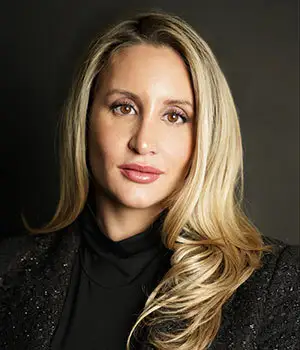
Dr. Lolis is a board-certified dermatologist at Schweiger Dermatology Group. She is fellowship-trained in Mohs surgery, cosmetic dermatology, and laser surgery. Her areas of expertise include skin cancer, Mohs micrographic surgery, cosmetic procedures, and laser surgery.
Dr. Lolis received a Bachelor of Science with honors at Yale University and a medical degree from Mt. Sinai School of Medicine in NYC. She is passionate about education and research and is very involved in training cosmetic and procedural fellows as well as physician extenders. Dr. Lolis has published many book chapters and articles in leading dermatology journals and is active in the Schweiger Dermatology Group clinical research department.

Skin health guru Erica Marie Gatt's decades worth of experience working as an aesthetician and makeup artist has shaped her foolproof, fuss-free beauty philosophy. She believes that curating thoughtful, streamlined skincare regimens for her clients is key to achieving effortless natural beauty and an overarching sense of empowerment, confidence and well-being. As someone who loves the outdoors and being active, Erica recognizes the link between health, wellness and beauty and embraces a holistic approach that puts equal emphasis on both an inner and outer glow.
Erica honed her talent and channeled her passion under the tutelage of celebrated Los Angeles esthetician Gina Mari after having spent years as a makeup artist. Acknowledging that the optimal canvas for makeup is clear, toxin-free skin, Erica gained invaluable experience working on a myriad of skin types with a range of needs, while learning from the industry’s top beauty mavens.
Get exclusive access to fashion and beauty trends, hot-off-the-press celebrity news, and more.
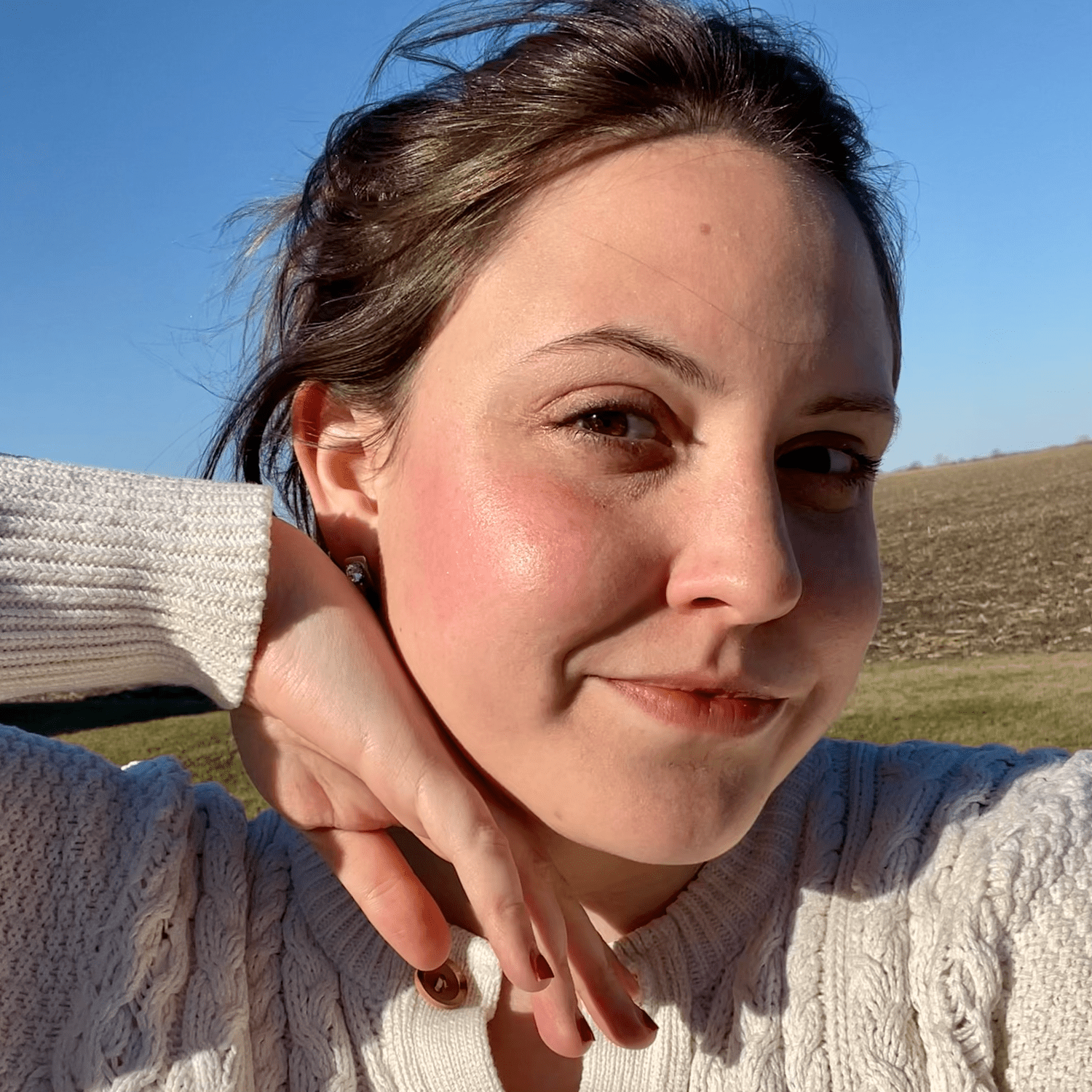
Sophia Vilensky is a Freelance Beauty Writer at Marie Claire with a beauty, wellness, and entertainment journalism portfolio that includes contributions to Byrdie, Bravo, Teen Vogue, and Us Weekly. Growing up in a family of beauticians—and through her own personal studies—she developed an in-depth understanding of aesthetics, cosmetic product formulation, and beauty treatment development and has also held roles as a senior copywriter, content strategist, and proofreader for top beauty and wellness brands. Even so, you'd be hard pressed to find her with her hair and makeup actually done. Sophia is based in Minneapolis and is a 2019 graduate of the University of Minnesota, where she majored in English and minored in cinema studies. During her time at the university, she was the Arts & Entertainment Editor for the Minnesota Daily, earning the 2019 Editor of the Year award for her work. She connected deeply with the Twin Cities arts scene, collaborating with leading beauty professionals, designers, and artists. Graduating Summa Cum Laude, her thesis—a close-reading of Vanderpump Rules—was featured on NPR. When not immersed in writing or testing new products, Sophia enjoys watching reality TV, reading, and exploring the newest woo-woo wellness trends. Keep up with her on Instagram @sophiavilensky.

